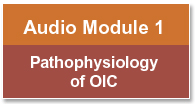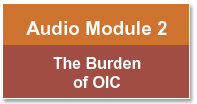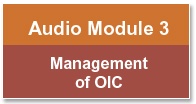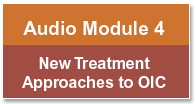| |
Accreditation
Physicians
This activity has been planned and implemented in accordance with the Essential Areas and policies of the Accreditation Council for Continuing Medical Education through the joint sponsorship of the Center for Independent Healthcare Education and Vemco MedEd, LLC. Center for Independent Healthcare Education (Center) is accredited by the Accreditation Council for Continuing Medical Education to provide continuing medical education for physicians.
Center for Independent Healthcare Education designates this Enduring material for a maximum of 1.0 AMA PRA Category 1 Credit(s)™. Physicians should claim only the credit commensurate with the extent of their participation in the activity.
Pharmacists
 Center for Independent Healthcare Education (Center) is accredited by the Accreditation Council for Pharmacy Education as a provider of continuing pharmacy education. Center has assigned 1.0 contact hours (0.1 CEUs) for this activity. Center for Independent Healthcare Education (Center) is accredited by the Accreditation Council for Pharmacy Education as a provider of continuing pharmacy education. Center has assigned 1.0 contact hours (0.1 CEUs) for this activity.
ACPE Universal Activity Number: 473-999-12-001-H01-P
Type of Activity: Knowledge-based
Release Date: 04/23/2012
Credit Expiration Date: 04/23/2013
Method of Participation and Instructions for Credit
- Review the entire CME/CE information including target audience,
learning objectives, and disclosures.
- Review each Audio Module.
- Complete the Post Test, Evaluation, and Credit Application form.
Please note that to receive credit you must achieve a score of at least 80%.
- Mail the completed Post Test, Evaluation, and Credit Application form to
Vemco MedEd, 245 US Highway 22, Suite 304, Bridgewater, NJ 08807
Or Fax to (908) 450-3300 Or email to bhassid@vemcomeded.com.
Documentation of credit will be mailed within 4 weeks of receipt of the completed Post Test, Evaluation, and Credit Application form.
Disclosure of Conflicts of Interest
Center for Independent Healthcare Education requires faculty, planners, and others who are in a position to control the content of continuing education activities to disclose to the audience any real or apparent conflict of interest related to the activity. All identified conflicts of interest are reviewed and resolved to ensure fair balance, objectivity, and scientific rigor in all activities. The faculty is further required to disclose discussion of off-label uses in their presentations.
Disclosure: Faculty
Gregory L. Holmquist, PharmD, CPE
Speaker’s Bureau: Salix Pharmaceuticals
Bill H. McCarberg, MD
Speaker’s Bureau: Endo Pharmaceuticals, PriCara, NeurogesX, Forest Laboratories |
|
|
Disclosures: Planning Committee Members
Marco P. Cicero, PhD
Nothing relevant to disclose.
Off-label Disclosure Statement
During this activity, the following off-label use of a medication is discussed: methylnaltrexone for the treatment of opioid-induced constipation in the absence of advanced illness.
Disclaimer
The opinions expressed in this educational activity are those of the faculty and do not reflect the views of Center for Independent Healthcare Education (Center) and Vemco MedEd. This educational activity may discuss off-label and/or investigational uses and dosages for therapeutic products/procedures that have not been approved by the United States Food and Drug Administration (FDA). Center and Vemco MedEd do not recommend the use of any product/procedure outside of the labeled indications. Clinicians should verify all information and data before treating patients or employing any therapies described in this continuing education activity. Please refer to the prescribing information for each product/procedure for approved indication, contraindications, and warnings.
Joint Sponsorship
This activity is jointly sponsored by Center for Independent Healthcare Education and Vemco MedEd.
Commercial Support
This activity is supported by educational grant from

Fee
There is no fee to participate in this activity.
Hardware/Software Requirements
Web Browser
Microsoft Internet Explorer, Mozilla Firefox, Apple Safari or Google Chrome with the QuickTime Plug-in
Note: Please disable any “pop-up blocker” features.
Software/Hardware
Adobe® Reader version 7 or above to view PDF files (If you do not have Adobe® Reader, you can download it for free from Adobe.com)
Adobe Flash Player version 10 or above to view multimedia content (If you do
not have Adobe Flash Player, you can download it for free from Adobe.com)
Connection Speed
Cable, DSL, or better of at least 300 Kbps
System Check
Please e-mail any questions or concerns to info@vemcomeded.com
Copyright Statement
Copyright © 2012 Vemco MedEd, LLC. All Rights Reserved. Permission for accreditation use granted to Center for Independent Healthcare Education.
Privacy Policy
http://www.vemcomeded.com/privacy.asp
|
|









